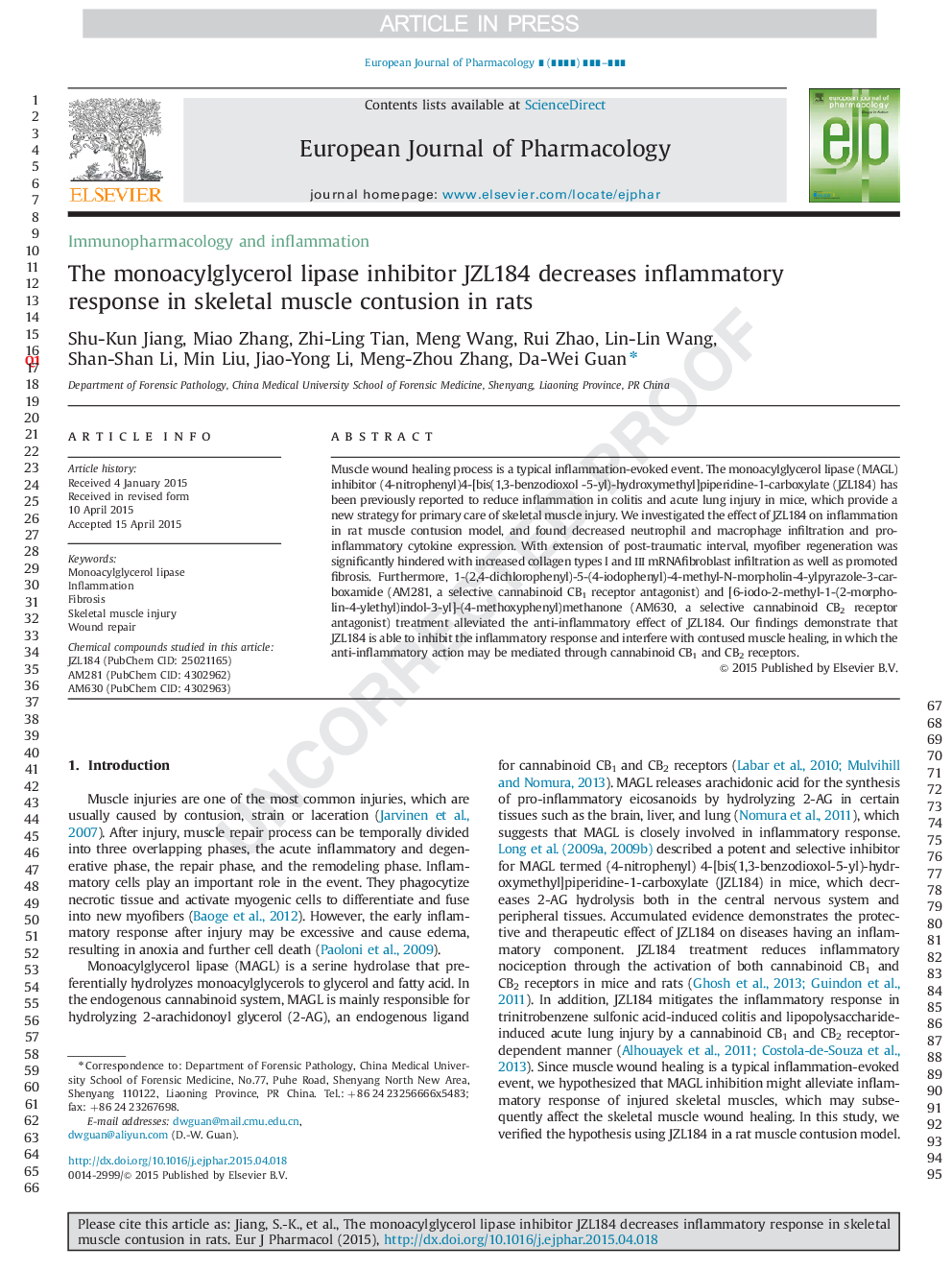| Article ID | Journal | Published Year | Pages | File Type |
|---|---|---|---|---|
| 5827077 | European Journal of Pharmacology | 2015 | 10 Pages |
Abstract
Muscle wound healing process is a typical inflammation-evoked event. The monoacylglycerol lipase (MAGL) inhibitor (4-nitrophenyl)4-[bis(1,3-benzodioxol -5-yl)-hydroxymethyl]piperidine-1-carboxylate (JZL184) has been previously reported to reduce inflammation in colitis and acute lung injury in mice, which provide a new strategy for primary care of skeletal muscle injury. We investigated the effect of JZL184 on inflammation in rat muscle contusion model, and found decreased neutrophil and macrophage infiltration and pro-inflammatory cytokine expression. With extension of post-traumatic interval, myofiber regeneration was significantly hindered with increased collagen types I and ÐÐÐ mRNAfibroblast infiltration as well as promoted fibrosis. Furthermore, 1-(2,4-dichlorophenyl)-5-(4-iodophenyl)-4-methyl-N-morpholin-4-ylpyrazole-3-carboxamide (AM281, a selective cannabinoid CB1 receptor antagonist) and [6-iodo-2-methyl-1-(2-morpholin-4-ylethyl)indol-3-yl]-(4-methoxyphenyl)methanone (AM630, a selective cannabinoid CB2 receptor antagonist) treatment alleviated the anti-inflammatory effect of JZL184. Our findings demonstrate that JZL184 is able to inhibit the inflammatory response and interfere with contused muscle healing, in which the anti-inflammatory action may be mediated through cannabinoid CB1 and CB2 receptors.
Keywords
Related Topics
Life Sciences
Neuroscience
Cellular and Molecular Neuroscience
Authors
Shu-Kun Jiang, Miao Zhang, Zhi-Ling Tian, Meng Wang, Rui Zhao, Lin-Lin Wang, Shan-Shan Li, Min Liu, Jiao-Yong Li, Meng-Zhou Zhang, Da-Wei Guan,
